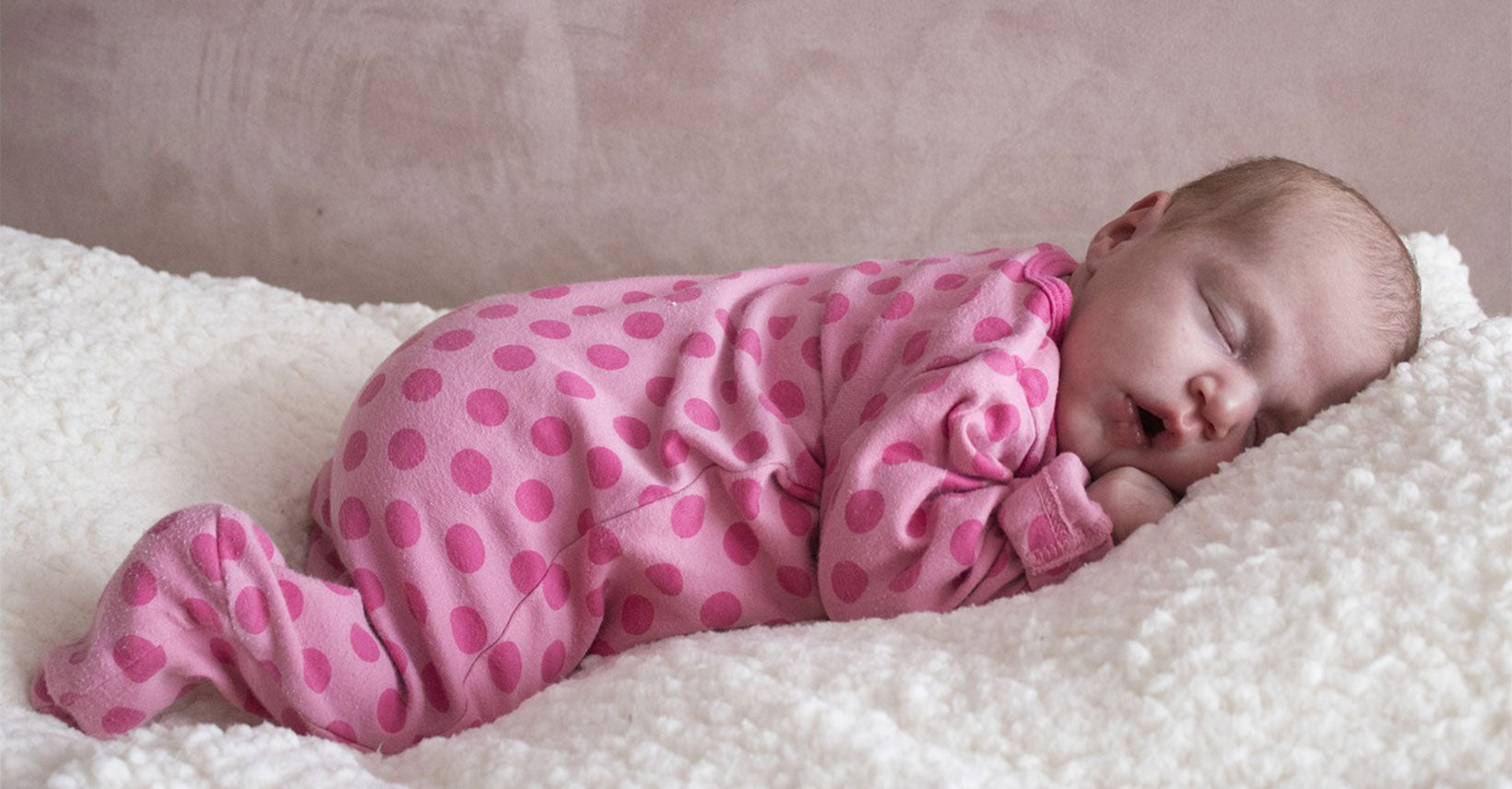


Dreaming is a fascinating part of sleep, but when it comes to babies, understanding when they start dreaming isn't so simple.
Researchers believe that the basis for dreaming may begin early in an infant's development, possibly as early as the womb, but there's no clear way to know exactly when. Babies spend most of their sleep time in rapid eye movement (REM) sleep, a stage of adult dreaming, but it's unclear whether newborns dream as much as older children or adults. Scientists are still exploring how brain development affects when and if babies start dreaming.
Infants spend most of their sleep time in Rapid Eye Movement (REM) sleep, a stage associated with adult dreaming. This has led some researchers to believe that they may dream, but the content and experience may be different from those of adults.
Because infants' language and memory are not yet fully developed, experts believe that their dreams may not include the organized storylines or images that adults experience.
Infants experience high brain activity during REM sleep, which suggests that their brains are processing information and developing neural pathways, but whether this activity translates into actual dreaming is unclear.
Research on brain development suggests that dreaming as most people understand it may occur as memory and visual processing abilities mature, which happens gradually as infants grow.
While there is no way to directly confirm whether infants dream or what they dream about, their frequent rapid eye movement sleep is likely related to critical brain development and not to dreaming.
Most experts agree that infants' sleep activity - such as facial expressions or twitching - is a natural part of brain development and does not necessarily indicate that they are dreaming, as it does in adults.
As infants begin to form memories and recognize faces and objects, they may begin to have dreams involving familiar elements, although this usually occurs in late childhood rather than infancy.

When infants start dreaming, researchers usually look at the infant's stage of brain development and sleep patterns. Infants spend a significant amount of time in REM sleep, a stage associated with dreaming in adults. However, during REM sleep, experts aren't sure if infants dream as consciously as adults because their brains are still developing the ability to store and process memories.
During infancy, a baby's brain focuses on forming basic connections, which occurs primarily during REM sleep. Newborns at this stage are thought to be processing sensory experiences and supporting neural growth more than they are actually dreaming. Without the ability to form structured memories or self-awareness, even dreaming is likely to be much simpler than the vivid experiences of older children and adults.
Experts generally agree that as a child's brain develops and memory improves, more recognizable forms of dreaming, including recognizable images or storylines, will begin to appear, usually in the first few years of life. For now, most REM sleep in infants seems to be more about key developmental processes than the complex dreams experienced by adults.
Researchers face many unknowns about what babies dream about.
Because infants lack language, clear memories, and fully developed senses, experts believe their dreams are likely to be very simple, if they occur at all. Unable to recall or describe experiences, the content of infants' dreams is likely to be based on basic feelings or impressions rather than the complex, story-like dreams of adults. Their dreams may involve abstract sensory experiences related to warmth, comfort, or even familiar sounds rather than specific people, places, or events. As they grow and begin to recognize faces and their surroundings, their dreams may gradually include these familiar aspects.
Experts believe that infants are unlikely to experience nightmares in the same way as older children or adults.
Nightmares usually involve fear or anxiety, which requires a degree of memory, emotion, and imagination that infants have not yet developed. Newborns and young infants are still learning how to make sense of the world, and it is difficult for them to form the scary images or thoughts associated with nightmares without a sense of danger or complex emotions. When an infant becomes restless or wakes up suddenly, it is usually due to normal factors such as hunger, discomfort, or the startle reflex, rather than a nightmare.
In summary, while infants spend most of their sleep time in Rapid Eye Movement (a stage usually associated with adult dreaming), it remains uncertain whether they actually dream in the same way. Their brains are focused on processing sensory experiences and making connections that are critical for development, so it is unlikely that they have structured dreams in early infancy. As infants grow and develop memory and recognition skills, they may begin to experience more defined forms of dreaming. However, any dreams they do have are likely to be simple and very different from the vivid, story-like dreams adults have.
People are still exploring the mysteries of infant dreams, and more research is needed to fully understand this fascinating aspect of early life.

Lily Hou
An expert in sleep sack design, is a valued contributor to Kaiya Baby's blog. With a strong background in baby sleep bags and maternal care, she is highly regarded for her professionalism. Lily prioritizes baby comfort and safety in her designs, using high-quality materials. Her insightful articles on sleep bags have been featured in reputable publications and have gained a significant readership. Trust Lily to help you create a comfortable and safe sleep environment for your baby, backed by her proven track record in the industry.
Leave a comment
This site is protected by hCaptcha and the hCaptcha Privacy Policy and Terms of Service apply.